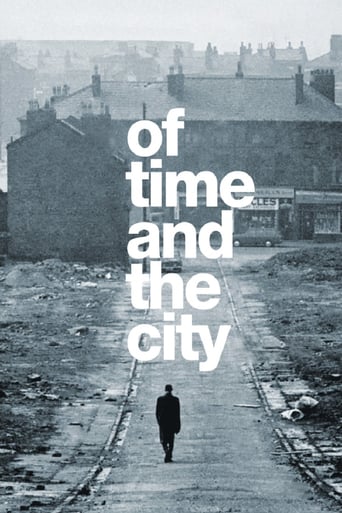christopher matthews
after watching of time and city i couldn't help but be so proud of the city that my parents and grandparents had made carved a life for themselves in what was extremely hard times compared with today. I felt that the film brought out a sense of togetherness of the people who really had very little to share. There are not many cities in this country where there is heavy industry, docklands, rundown ares yet only a few miles from, what was then a vibrant seaside resort (new brighton)for the people of liverpool to get away from it all. I'm from liverpool but live on the wirral, but liverpool is my home and this masterpiece of film makes me very proud of my roots. It was a joy to watch. The major difference in today society is health and safety, but as you can see the children of the yester year are simply enjoying there self's.
chaos-rampant
We kind of expect our artists to be haunted by demons, it is in tacit understanding that in their art we'll find the template to overcome ours. That, in visiting the dark place which is shared among all of us, we can defer to them for guidance, for the light that dissolves the shadows.Here we have the personal memoirs of one such artist. We see the demons, the hurt and anger generated by repressed homosexuality or a suffocating religion without answers. But they're up on the screen whole as dragged from the bitterest place, to be vexed than overcome. The manner is petulant, childish. Of course I agree with Davies for example about the obsolete, useless monarchy sucking the blood of the people, but how am I for the better by listening to his obvious, venomous attack upon it? I can get that in every forum online pending the royal wedding, from casual talk on the street.And what am I to make of the boy's dismay at the silence of god? Which the boy now not-quite grown up, perceives as indictment and completely ignores what comfort he was offered at the time by prayer. Surely, life is more complex than this.When by the end of this we get the realization of what matters, a life lived in the present without hope or love, it rings hollow because it hasn't been embodied in the work itself, which is riddled with an old man's angst.And this is not all of it. The elegy to the city and the time that shuffled it is too tricly, oh-so-sombre, so filled with yearnings. What emotion is here is so obvious, that Malick appears subtle by comparison to it. So easily, quickly digestible that in trying to sate so much, to gorge in it, it doesn't sate at all.What little of this works is the symphony of the city. The kind of film they were making in 1920's Berlin or Moscow to eulogize the booming architecture. With the twist that here, it is the uniquely British genius and propensity for creating a dismal urban landscape that appeals. The drab, grey routine. But I'd rather get this from The Singing Detective, which weaves it into a multifaceted story than a simple nostalgia. Or get the same experience Davies wants for his films from Zerkalo.I suspect this will fare better for the people who share his vexations with religion and society, and who can relax in them. Me, I can't relax in anything without consideration for what the images and voices in it mean. With movies that transport, I'm always interested in the place they transport to. This is not one of those places.
dbborroughs
Terrence Davies look at Liverpool and himself takes the form of a tone poem on film. Its a wonderful mix of sound and image and commentary that all comes together to make something special.I don't know what to say about this film other than see it. I say that because this is a very hard film to talk about except unless you've seen it. The reason for this is that there really isn't a narrative as such more the flow of time with the result that I can't talk about sequences and such because its hard to say how they all fit together.I will say that this film wonderfully creates a feeling of being in Liverpool over the course of time thanks to a skillful blend of new and old footage. Rarely does a film make one feel that one has actually been to the place its about.If I have any reservations about the film its that Davies commentary sometimes takes a snide turn. Its not that I have a problem with how he says views the Royal Family, rather its that in changing his tone he changes the cadences of his words and their delivery and the magic spell he so carefully weaves breaks for an instant.A wonderful film that's best seen in a dark room on a big screen with no distractions.
lastliberal
There was a time when the world was black and while. I lived in that time, and so did Terence Davies. His time in the 50s and 60s was spent in Liverpool, and in this film, this poem with images, and songs, and poetry, and and words of remembrance, he takes us to that time that only those who lived it would fully appreciate.We didn't really know we were poor. We made the best of it and found happiness where we could - at the beach, by winning a race at the fair, or in the movies.The crack began in the mid to late 60s, and we started to question why some had and others didn't, why a church held such power over our lives, why love could not be shared by all, black and white, straight and gay.I thank Terence Davies for this trip back. it was a beautiful thing.



